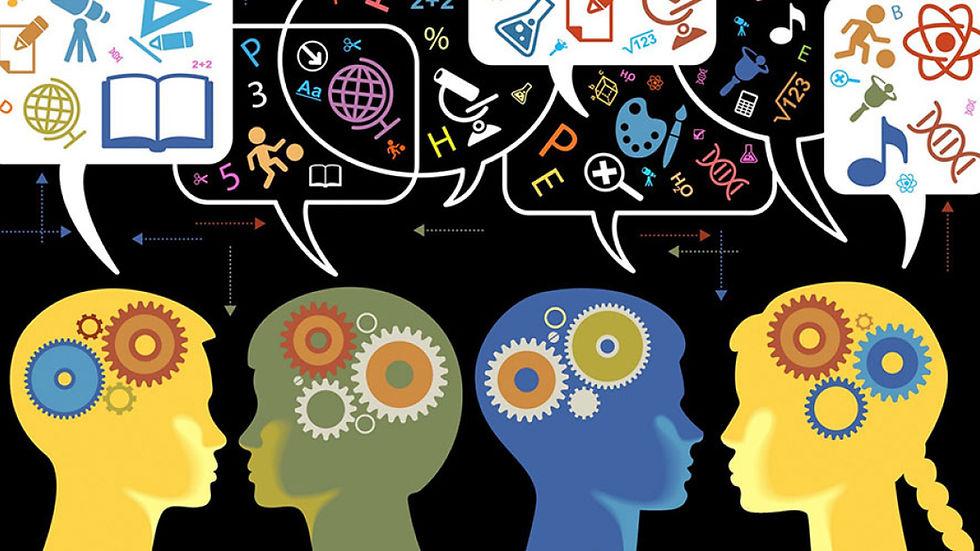Sympathy for the disruptor
- Joanne Jacobs

- Sep 1, 2023
- 3 min read
A student walks into class 10 minutes late and yells, "What's up, bitches?"

What's a teacher to do?
To cope with a rising tide of student misbehavior, some schools are trying to shift from punishment to empathy, writes Wayne D'Orio on Education Next. Call it sympathy for the disruptor.
The new approach requires retraining teachers, he writes. "If something is triggering outbursts from students — simply asking them to sit quietly at their desks or giving them a surprise quiz, for instance — teachers might be better off finding other ways to accomplish what is needed."
Stuart Ablon, the founder and director of Think:Kids in Massachusetts General Hospital’s department of psychiatry, provided the example of the disruptive student. The teacher should start with empathy. Why is the student not ready to learn?
You can even tell the student, “I know there must be an important reason you’re not sitting down and doing your work. So it’s okay.”
And because you can’t reason with a disregulated student, Ablon coaches staff not to force a behavior change on the student but instead to share their own perspective only after they understand the student’s viewpoint.
The third step is for the teacher to assess the problem and see if they can brainstorm a solution with the student. (This step might well require that another staff member — perhaps an instructional aide — be available to keep the rest of the class on task, advocates say.)
If I were a teacher introduced to this three-step process, I'd implement my own two-step process: (1) Scream and (2) Quit.
“It creates another level of frustration [that teachers] are being asked to do one other thing," says Harry Lawson Jr. of the National Education Association. “It can often feel as though there’s no longer a way for me as an adult to hold a student accountable."
Teachers already are quitting because of student misbehavior. They'd be wise to suspect they won't have an aide who can teach the class while they ask the disruptor about the "very important reason" he or she can't show up on time, sit down and pretend to do the work.
“If your goal is to better serve kids who are being disruptive, I totally get that, but what are the consequences for their peers in terms of learning time, feeling safe, and school culture?,” asks Michael J. Petrilli, president of the Fordham Institute.
It's one thing to create an Empathy Room, where a counselor can talk to kids about their problems. It's another to ask a classroom teacher to double as a therapist.
Teachers are "spending more time calming disruptive children and less helping students work through the academic material," reports the Washington Post. "We're scared to teach," said a long-time teacher who was punched by a student's aunt.
Amid the "post-Covid surge of student misbehavior and violence," Biden's Education Department is backing away from defining racial disparities in discipline as civil rights violations, writes R. Shep Melnick, a Boston College politics professor, also on Education Next.
In May 2023 the departments of Justice and Education released Resources on Confronting Racial Discrimination in Student Discipline. It offers "a more nuanced and pragmatic approach to the school discipline issue."
School leaders are reporting more misbehavior and violence, and rank-and-file teachers are worried "about their own safety and the difficulty of maintaining order in classrooms and hallways," he writes.
In addition, "research on the main alternative to out-of-school punishments — restorative justice —found that this approach to dealing with misbehavior falls far short of its supporters’ expectations."
RAND’s study of several schools in Maine found that “the middle-school student who received Restorative Practices Intervention did not report more school connectedness, better school climate, more positive peer relationships and developmental outcomes or less victimization than students in control schools did.”
A Pittsburgh study found fewer suspensions in elementary schools with restorative practices, but no improvement in academic outcomes. "At the middle grade level (grades 6-8) academic outcomes actually worsened in the treatment schools."



I have no sympathy for such kids (or the parents who clearly have failed in their parental duty to socialize kids appropriately) and no respect for schools that allow such behavior. As has been the norm for generations (likely for hundreds of years), schools should establish and explain the rules for appropriate dress, behavior and work ethic - to both kids and parents - from first school entry and enforce same. Combined with explicit instruction in all of the disciplines, it’s called preparation for an independent, productive and civically responsible life.
It's likely that the best teachers choose not to teach. Certainly not in the woke schools where the thugs are free to do their thing.
In an article in my local paper the other day about the bus driver shortage, it pointed out that "Delivery drivers don't have to tolerate poorly behaved kids."
I am thoroughly convinced that a large part of the problem of attracting and keeping teachers (especially quality teachers) comes down to working conditions. Having to deal with some children running around day in and day out disrupting their work as well as the learning of others with no consequences is demoralizing and drives people away.
District level administrators typically back down from anything that imposes consequences on misbehavior or failure because they don't want to deal with angry parents. Perhaps what we should be doing is calling the parents of th…
None of the fools who promote this kind of crap would tolerate it *for one minute* if it happened to them.
--mrmillermathteacher
While there are some students who geniuinely have problems and are crying out for help, these kind of things just show the knuckleheds that they are the center or attention and they run the show!